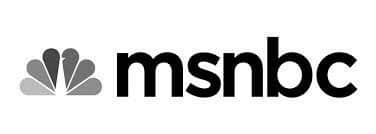Now is the Time to Protect Your Trademark, Your Business, and Your Goodwill
Own Your Mark.
Your brand is the culmination of your planning, strategizing, and executing. You built it. Now Protect it.
Get Set.
Are you debating bringing or defending a trademark opposition or cancellation proceeding before the Trademark Trial and Appeal Board (TTAB)? Revision Legal has extensive experience protecting intellectual property rights before the TTAB and is ready to work for you.
Go
Why Protect Your Mark?
1. Lock Out the Competition
Obtain or protect your exclusive ability to use your trademark in connection with your goods or services against any other business in the country.
2. You Must Protect It
As the owner of a trademark, you have an obligation to protect your trademark. If you decide not to act, you may lose your valuable trademark rights.
3. Take Control
A registered trademark gives you superior rights in protecting your domain names, drafting effective licensing and/or distribution agreements, preventing unauthorized goods from entering the country, and most importantly, litigating.
Why Hire Revision Legal?
1. Experience
Revision Legal has substantial experience protecting trademarks in state and federal courts and in proceedings before the TTAB.
2. Understanding
We understand that business goals often dictate strategy and we adapt our legal framework to meet your businesses goals.
3. Communication
We take pride in communicating with our clients. We not only quickly respond to your emails or calls, we provide a common sense explanation of the process. This might not sound like much, but this is surprisingly rare in the legal industry.





Frequently Asked Questions
What is a trademark?
A trademark is a word, symbol, or combination of the two that identifies the source of goods or services. In other words, a mark conveys to the public that a specific good or service originates from a specific company. When your company has established goodwill in its name or logo, that goodwill is personified in its trademark.
Is registration of a trademark required?
No, but federal registration brings a number of benefits. Anytime you begin using a trademark in commerce, by attaching your business name or logo to your goods or services, you acquire common law trademark rights. That is, trademark rights accrue based on use. However, these rights are limited. To fully protect your mark, federal registration is highly suggested. Federal registration of a trademark gives the owner nationwide priority to use the mark and lock out its competition.
What is the Trademark Trial and Appeal Board?
The TTAB is an administrative body within the United States Patent and Trademark Offices that hears disputes relating to the registration of trademarks. The United States Secretary of Commerce appoints the TTAB judges. The TTAB serves a limited role and only hears cases relating to the registration of trademarks. In other words, the TTAB does not hear trademark infringement cases and is not capable of awarding monetary damages.
What is a Trademark Opposition Proceeding?
A trademark opposition proceeding is brought when a person believes it will be damaged by the registration of a pending trademark application. Before a trademark application can be finalized, it must go through a 30-day period in which it is “published for opposition.” During this 30-day window, any person can file an opposition proceeding, although extensions are possible to increase the time to file. A “Notice of Opposition” requires a $300 filing fee.
What are the grounds to bring a Trademark Opposition Proceeding?
To prevail in an opposition proceeding, the oppose must have standing to bring the claim. That means the oppose must have a “real interest” in the proceeding and have a reasonable basis for the belief of damages.
Once standing is established, the oppose must plead a statutory ground for the opposition. The majority of opposition cases are brought based on a likelihood of confusion with an existing registered or common law trademark. Other grounds for opposition proceedings include priority of use, mere descriptiveness, geographical terms, surnames, or that the mark includes deceptive matter.
What is a Trademark Cancellation Proceeding?
A trademark cancellation proceeding is brought when a person believes it will be damaged by the continued registration of a mark. Unlike an opposition proceeding, a cancellation proceeding can be brought anytime, although the case becomes considerably more difficult after five years of registration. A “Petition for Cancellation” requires a $300 filing fee.
What are grounds to bring a Trademark Cancellation Proceeding?
Cancellation proceedings against marks that have been registered for less than five years generally resemble the grounds for an opposition proceeding. However after five years of registration, the grounds for cancellation are substantially narrowed. These narrowed grounds generally include cancellations based on a mark becoming generic, the abandonment of a mark, fraud in obtaining the mark, and misrepresentation of goods or services, among others.
How much do Trademark Opposition and Cancellation Proceedings Cost?
Every case is unique and the prices will vary. Trademark oppositions and cancellations are similar to traditional litigation and are billed at an hourly rate against a retainer on account. For more information about pricing, contact Revision Legal today.